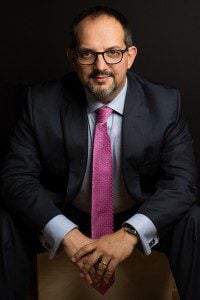Why is so easy to forget God when we are at work?
My friends, many of whom have a deep appreciation for God’s kindness to them and a deep desire to steward their influence and resources, find it incredibly easy to forget about God when they are immersed in their work.
I’ve had three careers: business, pastoring, and nonprofit leadership. Even in church or a Christian non-profit, you can say a prayer and then flip into work mode where the way you are working indicates you imagine yourself in a world without God.
Some of you may be thinking “forgetting God, is that really so bad? Remembering God could be much scarier!” Perhaps you’ve had a bad experience with a workplace crusader—and you wish they’d had a memory lapse—just like the way everyone reacts on the subway when a street evangelist interrupts our solitude with his Jesus pitch.
I am not arguing for religious obnoxiousness at work. I am suggesting that our inability to remember God at work is robbing us of qualities we crave: the ability to contain our work within sane boundaries and a sense of greater purpose in our vocational journey.
In Scripture, the failure to remember—to live in conscious awareness of God: his presence, plan, and power—has been a failing of “God seekers” in every generation. Today this forgetfulness is habituated into our sense of the world. So how did we get here? And why should we care?
Six Shifts that Feed Forgetfulness
Over the last five-hundred years, Charles Taylor and (his translator Dr. James K.A. Smith) highlight six shifts which make it much easier to forget God than it would have been 250 years ago. (See more on the work of Smith and Taylor here)
- Enchanted to Disenchanted: We have shifted from an enchanted world to a disenchanted world, from a world pulsing with invisible spiritual reality and meaning, to a cold world of physical mechanics.
- The Cosmos to Nature: The Cosmos has a personality behind it, it is part of a grand intention. Nature is devoid of any purpose save utlitiy, she is self-contained and limited to what we can see and measure.
- Sacred Self to the Buffered Self: The sacred-self has an identity which arises out of a community and creaturely status, where as the buffered-self is ultimately independent of family, tribe, or deity. The buffered-self has the freedom and burden of defining and finding a stable source of identity on her own. She has, as Tim Keller says, the most fragile self any society has ever created.
- Grace to Self-Sufficiency: Fed by #3, we see a shift from grace to self-sufficiency, from a life where we need others and must depend on their assistance, to self-sufficiency, where we trust no one save ourselves to save us. Our relational landscape becomes entirely transactional, and at the end of the day, we only have ourselves to praise or blame.
- Kairos Time to Kronos Time: In Greek, there were two words for time. Kairos time was about meaning and significance, an epoch, an age, a key season of inflection. Kronos was about the sundial. Today, absent a larger agreed upon story that brings meaning to even our mundane moments, we are stuck with time as a commodity.
- Eternal Flourishing to Existential Flourishing. Generations past embraced the conviction that ultimate and permanent joy and wholeness are not found in this life but awaited those qualified in the after life. Even as this promise of a better hereafter was abused by those who used religious ideals as a club in their will to power quest, it brought hope and meaning to those who faced great injustice and unrealized dreams in this world. A fixation on existential flourishing still produces haves and have not’s. It has not brought better lives to the masses of the world. And any of you who have looked for some flourishing on vacation know how quickly it can be erased on your first Monday back to work.
So What?
Taylor says that we are stuck in an immanent frame—with a reality reduced to what we can see and quantify. Work is a purely transactional experience where I make a deal to give some of my time, talent, and capacity, in exchange for currency. Currency gives me the power to get that I need and want. Work is so very here and now.
Let me suggest some consequences.
- We are all alone—we carry a tremendous burden to figure work out, to get ahead, to win on our own. We are each our own savior and solution.
- We can’t stop working. We have to keep grinding the job to pile fuel on the fire of this present tense life. There is always MORE we can do. There is no person or standard who can definitively say “enough.”
- We don’t know why. We find it difficult to find a compelling reason for the actual work we do. Our source of meaning is limited to income, winning, or some vague sense of making life better for someone else (there is nothing transcendent.
“I don’t care about what our company actually does” one friend muses.
“I guess my job is to make rich people richer” muses a connection in institutional banking laments.
“My work is just a platform for me to do other things” a business owner suggests.
This is the world we go off to work in, the world we have made. The world best summarized by Julian Barnes.
“I don’t believe in God, but I miss him.”
About the Author:
Dr. Chip Roper writes Marketplace Faith from New York City, where he is the Executive Director and Principal Consultant at Voca Center, an organization dedicated to helping clients find and follow their vocational calling. In service of this vision to empower individuals to approach their work with a keen sense of purpose, Dr. Roper provides coaching, training, and consulting to individuals and organizations. You can learn more about him here. Voca can help you or your team reach their vocational potential. Learn more at [email protected].
The VocaCenter is an initiative of Lead.NYC, a subsidiary of The New York City Leadership Center.
Pic 1: Rights secured thru license with Thinkstock Photos
Pic 2: Public Domain
http://www.publicdomainpictures.net/view-image.php?image=69009&picture=blank-canvas-in-old-wooden-frames















